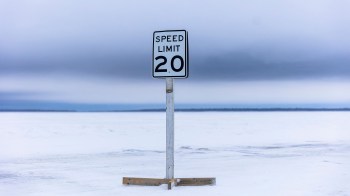How high-speed rail could help the U.S.’s aging infrastructure
How high-speed rail could help the U.S.’s aging infrastructure
TEXT OF INTERVIEW
Jeremy Hobson: The Florida Department of Transportation has released a study showing that the proposed high speed rail line between Tampa and Orlando would have had more than three million riders. And would have made money in its first year. But as you may remember the Governor of Florida turned down federal funds for the project.
Let’s bring in our economics correspondent Chris Farrell to dig into the issue of high speed rail and its economic impact. Good morning, Chris.
Chris Farrell: Good morning.
Hobson: So how important is high-speed rail for the economies of various regions in the country?
Farrell: I think that high-speed rail is important in the short run because it will provide a lot of construction jobs. And in the long run, I think it’s very important in a region because we have an aging infrastructure, we have increasing congestion, and Jeremy, I don’t know if you noticed, but we also have a high price of oil. So high-speed rail will help move people cheaper, faster and easier.
Hobson: But there’s a lot of skepticism that remains. What is the cost of just leaving things the way that they are right now?
Farrell: I think there are two major costs. If you look at our infrastructure, it’s aging. Recent estimates say it’s costing us $200 billion a year. If you look at things like trucks, just sitting in traffic. So that’s a long-term cost in terms of our bridges, our water, our energy. But the other part of is it we need to start dealing with creating a new infrastructure that really gets around this whole issue of congestion, and high-speed rail is part of it. Unless you want to be building airports everywhere.
Hobson: Now, there are 50 states in the country — is there any state that you’re looking at that’s doing things right?
Farrell: There are a number of states that are doing things right. Denver’s doing things right in that city; Twin Cities here, we’re building light rail. But let me highlight Virginia. The new governor Bob McDonnell, borrowing $4 million. And what he said is, ‘Look, interest rates are low. Our economy is weak. The cost of construction is down. Now is the time to borrow and rebuild our roads.’ Bravo, he’s doing the right thing.
Contrast that with Governor Christie in New Jersey; he decided he didn’t want to spend the $2.7 billion to improve the rail link between New Jersey and New York. And Jeremy, it’s the wrong move for New Jersey because the growth of northern New Jersey really depends on the metropolitan area called New York City; it extends into Connecticut, it extends into New Jersey. And so workers can go back and forth with ease, and safely.
Hobson: Two Republican governors doing two very different things when it comes to infrastructure. Marketplace’s economics correspondent Chris Farrell, thanks so much.
Farrell: Thanks a lot.
There’s a lot happening in the world. Through it all, Marketplace is here for you.
You rely on Marketplace to break down the world’s events and tell you how it affects you in a fact-based, approachable way. We rely on your financial support to keep making that possible.
Your donation today powers the independent journalism that you rely on. For just $5/month, you can help sustain Marketplace so we can keep reporting on the things that matter to you.


















